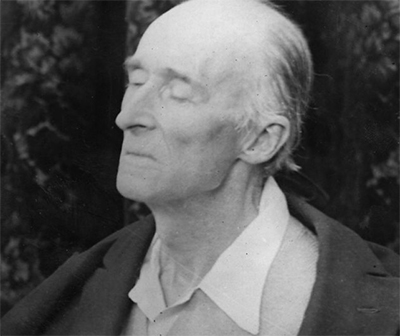by Jarrett Hoffman

•Cleveland Orchestra: a new recording and a promotion on the podium
•A film concerning the life of Shostakovich in Soviet Russia
•Almanac: reflecting on Frederick Delius on the anniversary of his passing
CLEVELAND ORCHESTRA NEWS:
On Friday, The Cleveland Orchestra released a new recording of music by Béla Bartók: the String Quartet No. 3 — arranged for string orchestra by assistant principal viola Stanley Konopka — and the Suite from The Miraculous Mandarin. Both works are led by music director Franz Welser-Möst and were recorded live at Severance Music Center in January. Click here to browse your listening options.
And the Orchestra has announced the promotion of Daniel Reith (pictured) from Assistant Conductor to Associate Conductor, in addition to his duties as Music Director of the Cleveland Orchestra Youth Orchestra. Reith also received a one-year contract extension, carrying him through to the conclusion of the 2024-25 season. Read the press release here.
ON THE SCREEN:
Julian Barnes’ 2016 historical novel The Noise of Time — about the life of Shostakovich under the regimes of Joseph Stalin and Nikita Khrushchev in Soviet Russia — is being adapted into a film that will begin production in January. Read more here from The Violin Channel.
TODAY’S ALMANAC:
by Mike Telin

Born in Bradford, England on January 29 1862, Frederick Theodore Albert Delius had little interest in the family business. In 1884 he was sent to Florida to manage an orange plantation. Realizing that orange business was not for him, Delius returned to Europe two years later.
His first musical successes came in Germany in the late 1890s although his music was regularly seen on British concert programmes until conductor Sir Thomas Beecham became a champion of his works. In 1909 Beecham conducted the full premiere of A Mass of Life, and a year later he staged the opera A Village Romeo and Juliet at Covent Garden. In 1929 the conductor produced a six- day Delius festival as well as recording of many of his works. Although in his later life Delius contracted syphilis and was left both paralyzed and blind, he completed late compositions with the assistance of his scribe, Eric Fenby.
Click here to watch the documentary A Portrait of Frederick Delius: Life and work of the English Romantic composer. The hour-long program includes commentary from Sir Charles Mackerras, the Welsh National Opera Orchestra, violinist Tasmin Little, cellist Julian Lloyd Webber, baritone Thomas Hampson, the Brindisi Quartet, the Brabant Orchestra of Holland, conducted by Richard Armstrong, and the Brighton Festival Chorus. Additionally, Robert Threlfall of the Delius Trust explains his continuing work on the complete edition and his fascinating research into the original manuscripts and Sir Thomas Beecham’s editing and Dr. Eric Fenby talks about his time with the composer.



